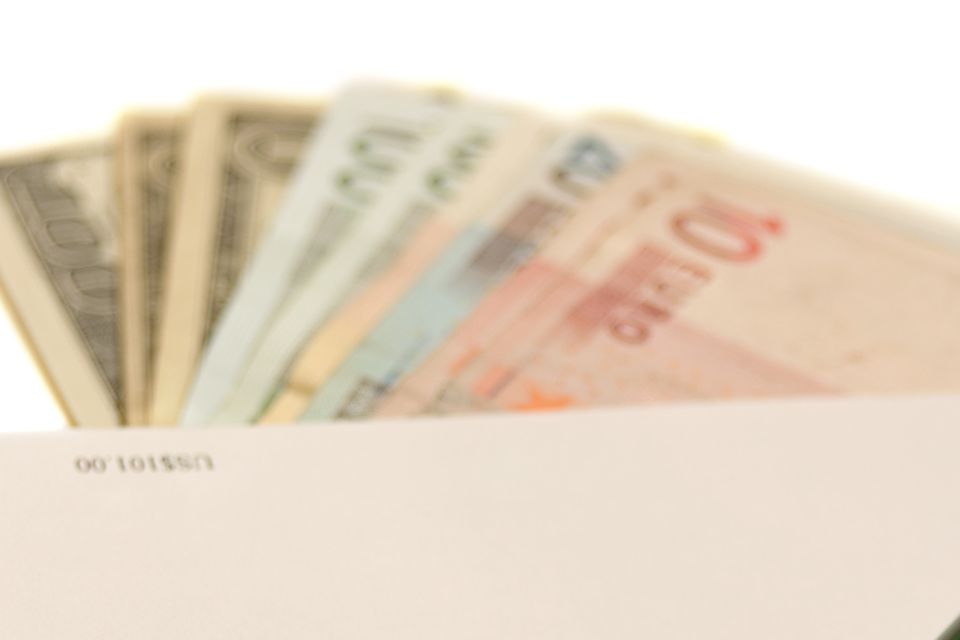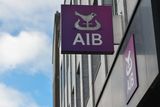With schools and tradesmen looking to exit, it's the end of the cheque era
Cheques could be on the way out as e-day arrives
It's around this time of year that the back-to-school costs surveys start to pile up, drawing attention once again to the ever-rising costs of putting a child through a primary or secondary school system that is supposed to be 'free'.
One of the more interesting findings in the report from parenting forum Mummypages.ie, which surveyed nearly 1,800 parents, was that 91pc of mums would favour a phased payment system throughout the year to incorporate the voluntary contribution, schools books and book rental scheme fees.
Not a bad idea, but the setting up such a structured payment system would no doubt be helped if most schools were able to accept electronic payments.
A report published last year by the Central Bank drew some attention to this fact, revealing that for 94pc of parents of primary school children and 87pc of secondary school, cash and cheques were the primary ways of making payments to schools.
Schools, along with tradesmen and some professional classes, remain one the last bastions of cheque and cash usage as far as consumers are concerned.
A majority of parents surveyed (56pc) said they would use electronic methods if they were available. At least there is a strong willingness among schools to migrate to electronic payments, according to the report, with the majority preferring the setting up of a dedicated school payments system.
The report called on the Department of Education and Skills to rollout a national programme to help schools enable electronic payments by 2016, and a spokeswomen said the Department aims to try and meet the target and has been engaging with schools on the issue.
The last survey on cheque usage by the Central Bank from August 2014 showed that cheque usage has been steadily declining from a peak of 132 million cheques in 2005 to 76 million in 2012 and a projected 61 million last year. It's still a lot, compared with other EU countries, of course, but its also declining rapidly.
The Department of Finance, which recently took over responsibility for the National Payments Plan (the strategy devised by the Government to save up to €1bn annually for the economy by moving from cash and cheques to electronic transfers) from the Central Bank, has no plans to conduct a fresh survey.
Which is a shame, as a new survey would give a indication of the impact of last September's 'e-day' - the day when public sector bodies stopped sending cheques to and accepting cheques from businesses. Small businesses, at least in the first half of 2014, accounted for 60pc of all cheques issued and received.
But while it was widely predicted that e-day would be the final nail on the coffin for chequebooks, there are still a number of issues in cutting down on the number of cheques in circulation, says Bob Quinn of Kildare-based The Money Advisors, not least that farmers and tradesmen still prefer them as their main method of payment, after cash.
But why do they still like them so, even with the higher fees that banks now charge for processing them? It's mainly because its easy to reconcile end of month accounts using a cheque book stubs, and the belief that it's a form of 'on-the-spot' payment, although "nothing could be further from the truth", said Mr Quinn.
Alternative methods of payment, such as mobile credit card processing machines, usually come with minimum standing charges and may not be cost-effective, while some areas don't have 3G, let alone 4G, so there may be issues in using them, he said.
Furthermore, setting up new payees on some online banking platforms "can be difficult or simply downright frustrating".
"Many of these challenges will only be reduced when people start to focus on the real cost of paying for goods and services by cheque," said Mr Quinn, "There is evidence that some consumers are reducing their reliance on writing cheques, particularly those consumers who analyse bank fees and charges, stamp duty etc."
Indeed, it is now standard practice by all the banks to issue chequebooks to current account customers only on request (except KBC Bank, which doesn't issue chequebooks at all).
But a quick poll on social media reveals that some folks have successfully paid tradesmen in recent months using bank transfers, so maybe things are at last moving on.
Ted Laverty, CEO of Onlinetradesmen.ie, acknowledges that tradesmen still lag behind in terms of keeping up to date with new mobile payment technologies, such as card readers that can be connected to a smartphone.
On the other hand, some consumers may still be reluctant to use unfamiliar technologies unless they completely trust their tradesmen or have used them regularly.
However, Onlinetradesmen.ie, which matches tradesmen to customers, is launching a facility called Tradepay that allows customers to pay tradesmen via the site using a credit or debit cards. It will be free to use for consumers from mid-September, and offers a layer of security that many should find reassuring, said Laverty.
Join the Irish Independent WhatsApp channel
Stay up to date with all the latest news















